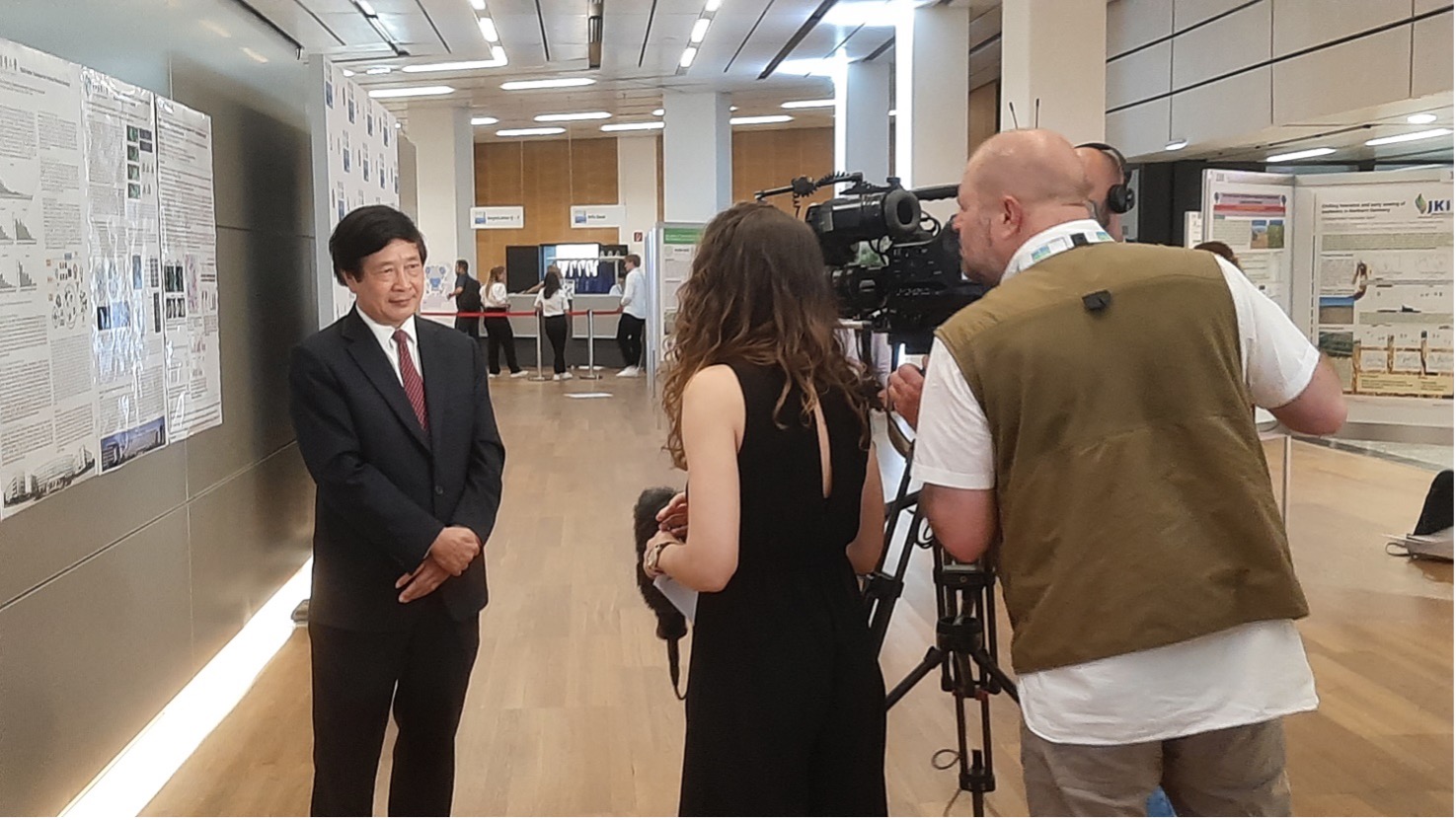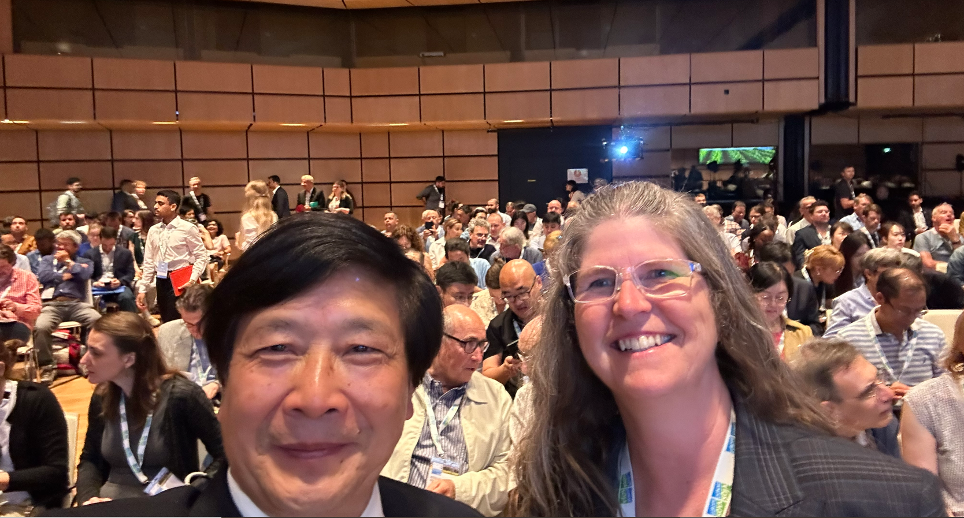Eleventh World Soybean Research Conference Organized in Vienna with Focuses on Sustainable Development of Soybean Industry

Vienna, 20 June 2023 – The 11th World Soybean Research Conference (WSRC-11) was held in Vienna, Austria, from 18 to 23 June 2023. Over 500 participants from 51 countries attended the conference, including representatives from government, research and academia, extension and education, NGOs, private sectors, and resource partners. The opening ceremony of the conference was participated and opened by the Austrian Federal Minister of Agriculture, Forestry, Regions and Water Management, His Excellency Norbert Totschnig, and the Federal Minister for Climate Action, Environment, Energy, Mobility, Innovation and Technology, Austria, Her Excellency Leonore Gewessler.
Mr Jingyuan Xia, Director of FAO Plant Production and Protection Division, was invited to make a keynote presentation at the conference. Director Xia mentioned that the soybean is a multi-functional crop, which provides food, feed, fertilizer and fuel (biofuel), and supports the livelihoods of smallholder farmers, and thus directly contributes to achieving numerous Sustainable Development Goals (SDGs), namely, SDG SDG 2 (Zero hunger), SDG 3 (Good health and well-being, and SDG 12 (Responsible consumption and production).
Current agricultural practices are unsustainable because natural resources are being inefficiently used, which puts too much pressure on the environment”, said Mr Xia. He noted the soybean production has driven the conversion of forest and savannah ecosystems to agriculture, which is the main drivers of deforestation in many developing countries. He further stressed an urgent need for sustainable soybean production to better address the current and emerging challenge faced in soybean production.
Director Xia mentioned that FAO proposes a strategic approach to a sustainable soybean value chain through optimization and minimization of production systems to overcome the major existing and emerging challenges. This concept promotes optimized use of natural resources and minimized application of agricultural inputs by diversifying cropping systems, adoption of innovations, new varieties, technologies and integrated approaches. Thus, enhancing soybean production contributes to achieving the SDGs, and fostering international cooperation among relevant stakeholders.

He further highlighted the following five strategies for promoting sustainable soybean production: 1) increasing recourse use efficiency, in particular, water and fertilizers; 2) developing more resilient and diversified soybean cropping systems; 3) promoting the application of innovative technologies such as alternatives for mineral fertilizers; 4) fostering context-specific agricultural extension services, such as Farmer Field Schools; and 5) creating enabling environment covering national framework and policies, standards for good agricultural practices, fostering incentive mechanism, and financial support.

The conference was organized by the University of Natural Resources and Life Sciences, Vienna, Austria, the Institute for Field and Vegetables Crops, Novi Sad, Serbia, and the non-profit organization Donau Soja, Vienna, Austria. The focus of the conference was on the need for a different approach that makes soybean production more sustainable and resilient to future climate change scenarios.
